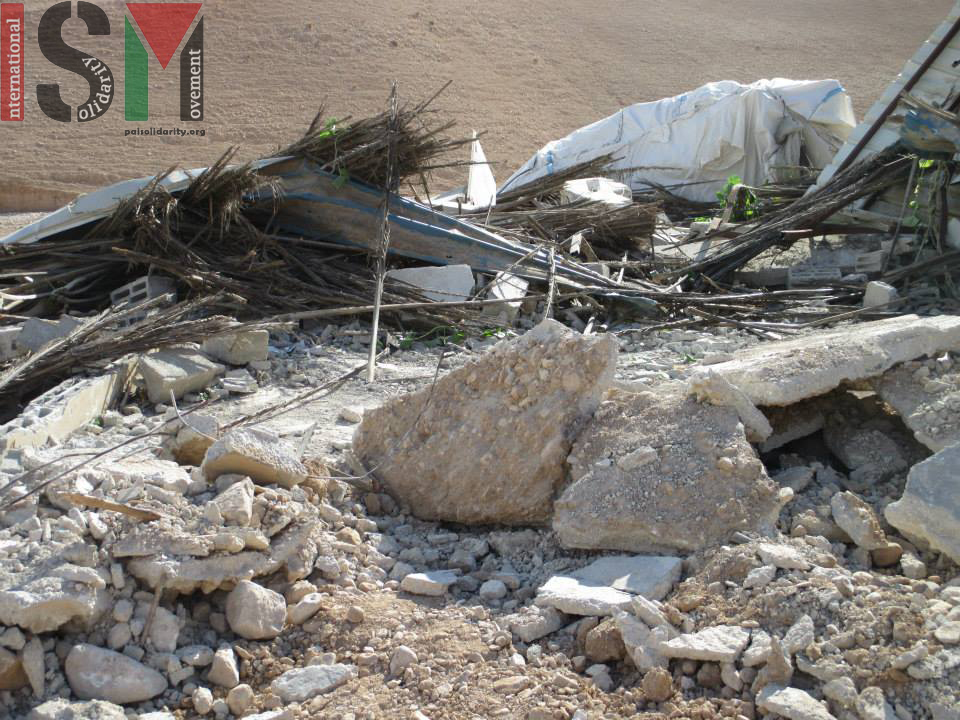Tag: House Demolition
-
Israeli forces demolish three houses, and several water pipes and roads in village near Nablus
4th November 2014 | International Solidarity Movement, Nablus Team | Khirbet Al-Tawil, Occupied Palestine Early on Monday morning, while the inhabitants of the village of Khirbet Al-Tawil, near Aqraba (Nablus), were sleeping, eight military vehicles, and 30-40 Israeli soldiers entered the village. Within two hours the military had demolished three houses, and several water pipes and roads. The…
-
Israeli military demolishes a Bedouin village in the South Hebron Hills
28th October | Operation Dove | Um Al Kheir, Occupied Palestine Yesterday, Israeli forces demolished a total of seven structures in the Bedouin village of Um al Kheir. The structures demolished are, three houses made of concrete, a caravan donated by the United Nations (United Nations Human Rights Response Fund with the support of Ireland, Norway, Spain, Sweden,…
-
Family home and five other structures demolished by Israeli military
21st October 2014 | International Solidarity Movement, Nablus team | Jordan Valley, Occupied Palestine On October 20th, the Israeli military destroyed six structures belonging to a family in the village of al Jiftlik, in the Jordan Valley. At approximately 6:00 am, Israeli soldiers destroyed the family home of Mohammed Mousa Mohammed Abohernam, as well as five other buildings,…



